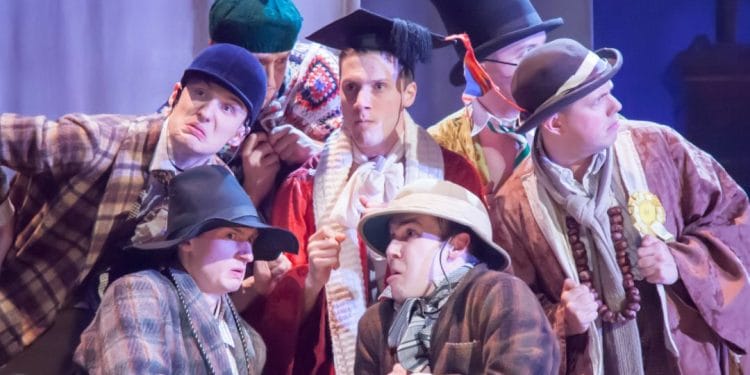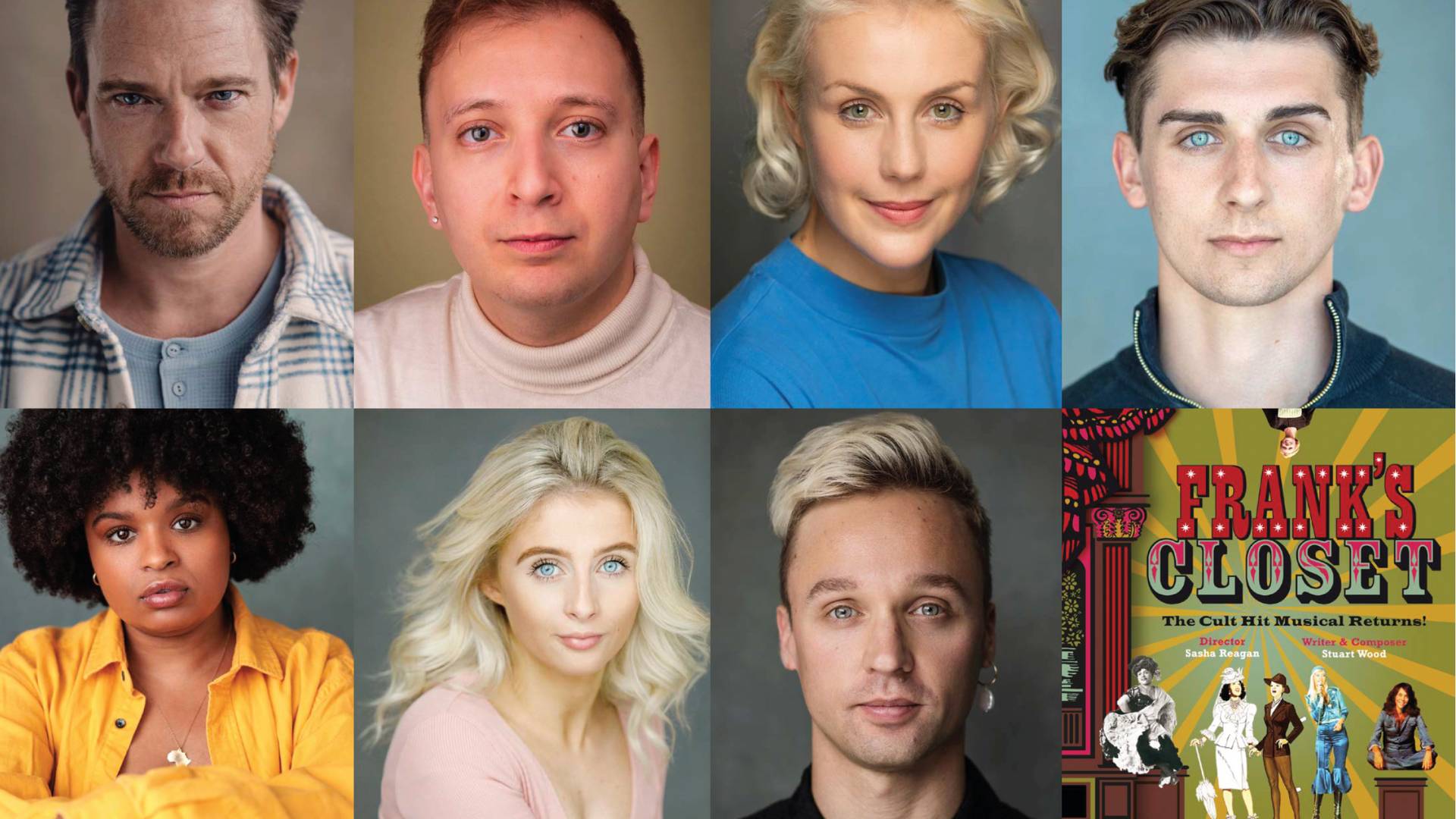 In the days when single-sex schools were more prevalent, all-male productions would have been common place, with Gilbert and Sullivan’s operettas a popular choice. Sasha Regan has continued the tradition with this all-male Iolanthe which is currently touring the UK, it follows previous successful all-male runs of The Mikado and The Pirates of Penzance.
In the days when single-sex schools were more prevalent, all-male productions would have been common place, with Gilbert and Sullivan’s operettas a popular choice. Sasha Regan has continued the tradition with this all-male Iolanthe which is currently touring the UK, it follows previous successful all-male runs of The Mikado and The Pirates of Penzance.
Iolanthe is probably one of Gilbert and Sullivan’s lesser known works, although a recent production at The London Coliseum will have helped to revive it in the theatre-going consciousness. The fairy Iolanthe has been banished from the group for marrying a mortal, the result of a commuted death sentence from a benevolent queen. Twenty-five years later she is recalled and the fairies discover she has a half-mortal son who is in love with a ward of the chancery.
Strephon is unable to marry Phyllis, because the Lord Chancellor and most of the House of Lords also want to marry her! So, the fairies confront the peers of the realm with the intent of helping their nephew, only to fall in love with the Earls and Dukes themselves. The Lords are portrayed as bumbling fools, wearing dressing gowns and other mismatched attire, and generally failing to do anything useful.
It does take a song or two to adjust your perceptions, the opening number ‘Tripping Hither, Tripping Thither’ where a group of young men dressed as fairies, and singing about their fairy ring could certainly catch you off guard. But, a few songs in and you’ve completely forgotten some of these talented performers are men.
The key to making this work, which Sasha Regan has clearly identified, is to play it straight. Yes, the audience are laughing (it’s a comic opera, for a start), but the performers are taking it seriously. Nothing about the script has been changed, so the female characters are still female, they just happen to be being played by men.
Both Joe Henry as Phyllis, and Christopher Finn as Iolanthe give astoundingly realistic female performances, while Alastair Hill’s Lord Chancellor is entirely engaging, especially during those notorious patter songs.
The fairy-tale motif is created immediately, as schoolboys explore excitedly with torches. That theme continues throughout, with the staging and costumes portraying their own shabby beauty. The understated fairy wings, which are all different, reflecting the fairies individual personalities, really pay off during some lovely choreography from Mark Smith.
With just a single piano accompanying throughout, Musical Director Richard Baker adds the final piece of magic to this charming and elegant production. Perhaps in today’s society, gender neutral casting shouldn’t even need to be mentioned, but given this particular operetta has Gilbert’s trademark female focus, Sasha Regan’s all-male Iolanthe deserves the recognition for doing something different, and making it work.
























